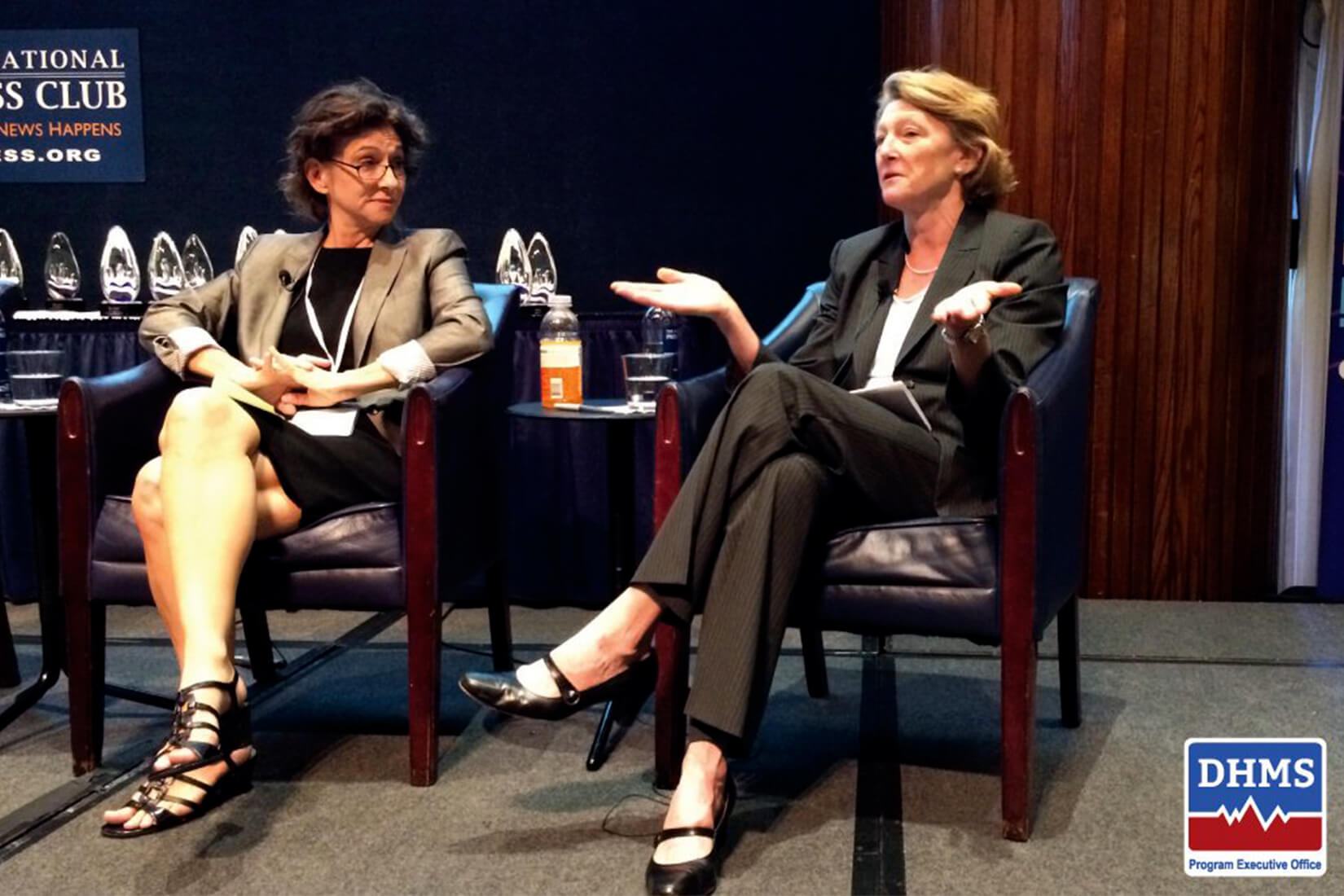
WASHINGTON—How much will implementation and integration of a new electronic health record slow down processes at the VA, which already struggles with delays in care?
That question was raised at a recent congressional hearing. John Windom, VA acting chief health information office and program officer, responded that the agency will do “the absolute best it can” to not hinder delivery of care to veterans during the transition to a new EHR.
“We are learning by the day, and we are going to continue to develop our implementation and integration strategies to minimize that impact on our veterans and on the clinicians that serve our veterans,” he explained.
Windom made those comments at a hearing held by the House Committee on Veterans’ Affairs Technology Modernization subcommittee.
“It slows you down; there is no question about it,” pointed out Rep. Phil Roe, MD (R-TN), who chairs the House Committee on Veterans’ Affairs. As a physician, Roe said he has been involved with an EHR implementation and it is “difficult.”
Windom responded that VHA is assuring it has “strategies that augment the workforce” as part of the implementation strategy.
The hearing was the first for the newly-formed subcommittee, which was created this past summer to focus on VA’s EHR implementation efforts. The subcommittee came into being after VA announced in June a signed contract with Cerner for its new EHR.
“Very rarely has a body of the Congress been dedicated to oversight of one program from its inception,” noted subcommittee Chairman Rep. Jim Banks (R-IN).
At the hearing, lawmakers focused on the question of who has the authority to decide on issues jointly affecting the VA and DoD, which already is putting a similar EHR into place.
“Who is in charge of this thing?” Roe asked. “We need to establish that today. Who can the chairman and ranking member contact when they need to know something about the program?”
Banks suggested that the Interagency Program Office, mandated by the FY 2008 National Defense Authorization Act (NDAA) is supposed to be the single point of accountability, although that “has never truly been” the case.
A recent Government Accountability Office report noted that, while the IPO “has led efforts to identify data standards that are critical to interoperability between systems, the office has not been effectively positioned to be the single point of accountability as called for in the National Defense Authorization Act for Fiscal Year 2008.”
Testifying about the IPO challenges was Carol Harris, GAO director of IT Acquisition Management Issues. Harris said that GAO is recommending that VA “clearly define the roles and responsibilities of the IPO within the governance plans for acquisition of the new system.”
Roles Uncertain
The GAO explained in its recent report that the “the future role of the office with respect to VA’s current electronic health record modernization program is uncertain.”
IPO Director Lauren Thompson, PhD, explained in written testimony that her office “has been actively supporting the departments with the development of a governance process to enable them to make joint decisions regarding common aspects of the Electronic Health Record solution.”
This will include “joint DoD/VA Electronic Health Record Modernization governance bodies,” she said.
When asked about the role of the IPO by ranking member Conor Lamb (D-PA), both Thompson and Windom agreed that the IPO does not have decision-making authority.
Harris noted that the mandates of the law suggest otherwise.
“According to the law, the IPO is supposed to be the single point of accountability, so that would include responsibility, authority and decision-making responsibilities, so I think that what they responded to is in conflict to the expectations set up by the law,” she said.
Harris said she agreed with Lamb that, as of now, no single accountability point exists for the joint success of the interoperability between the DoD and VA EHRs.
In response, Rep. Mike Coffman (R-CO) asked whether it would be better to put one of the two agencies in charge.
“If either DoD or VA were in charge of this and were not co-equals, I think this would be done by now. I don’t think we would have wasted $1 billion dollars,” he said.
“That is something that the departments should discuss as they define the roles of joint governance moving forward for their two implementation efforts,” Harris responded.
Banks concluded the hearing by saying the IPO has an important and permanent role to play in governance and, in fact, should do more.
“My hope is that DoD and VA will hash out what that looks like and come to mutual agreement. I am willing to give them additional time to do that, but I will not wait forever,” he warned.

